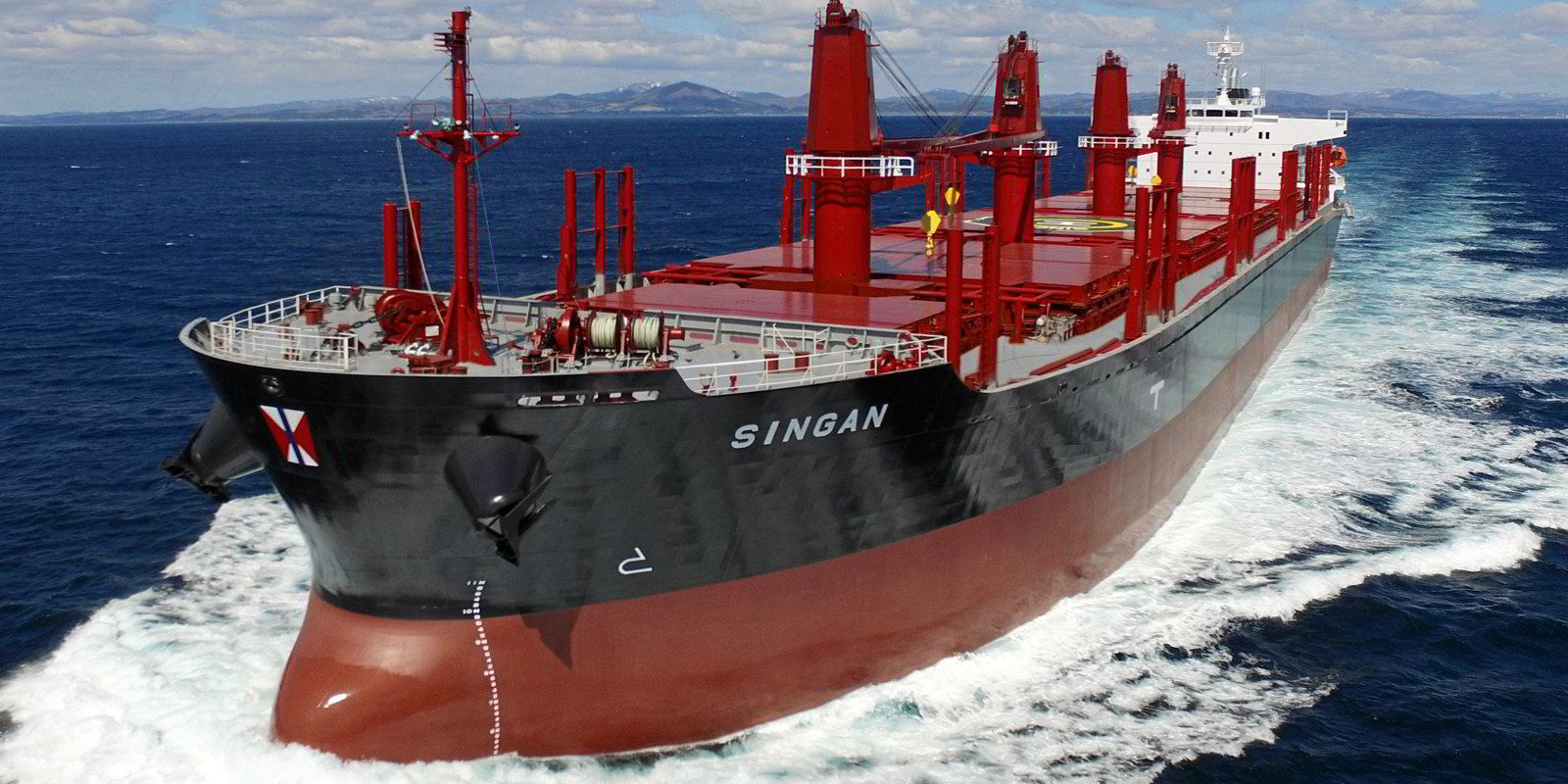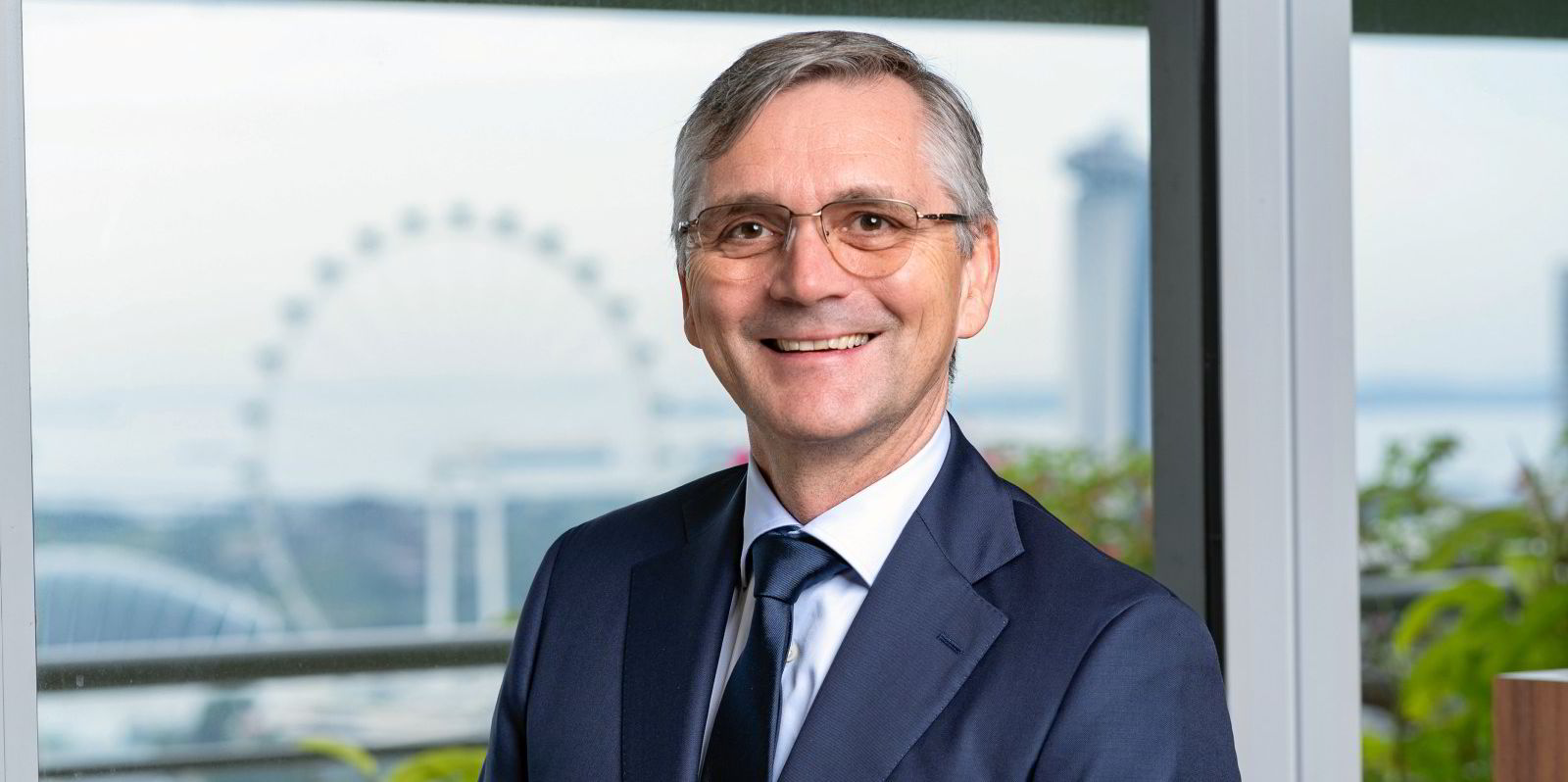Chief executive Peter Norborg wants to keep Swire Bulk lean and efficient.
With more than 35 years of experience in dry bulk, Norborg describes the Singapore-registered company as a marginal business.
“We operate in a market that is defined by seven bad years and seven good months,” he said. “It has been two very good years for Swire Bulk and this year is looking very good too.”
Looking ahead, the Dane believes the dry bulk market will return to the normal level, and when that happens, business will become “very marginal”.
“You got to always have a focus on your efficiency and your cost. It is not to be ignored,” he said. “We make sure we create an organisation where everybody knows exactly what is expected, our targets and understand the cost of running the business.”
Norborg said it is imperative to stay focused and alert to ensure the company is structured and organised so that all of its energy is channelled towards the market and the customers.
“We got to run fast and do well to ensure that we can give the return back to our shareholders as they deserve,” he said.
Swire Bulk undertook to keep itself lean and efficient by consolidating its offices in Australia and Europe. It merged the Melbourne office with its Sydney office and moved the London activities to Hamburg.
Norborg said the integration of the offices was a preparation for the company’s next step.
“It was clear to us that we could probably do better with one larger office in both Australia and Europe than having two small offices spread over with the same number of people,” he said.
“So our first step was merging [the] Melbourne office back into Sydney, where we had our parcel teams sitting there already.
“We saw that having a larger office with more people, there is more interaction between our two desks [bulk and parcel]. It did create more activities and a better environment, and a better service to our customers.”
Swire Bulk was formerly the bulker arm of China Navigation Co. It became an independent entity in January 2021, just as Norborg joined.
Today, the company employs about 140 people and operates between 120 and 150 handysize and ultramax bulk carriers. Twenty-five of the handysizes are owned.
Norborg disclosed that Swire Bulk sold 11 vessels in the past two years, deeming the resale price good.
“We are fortunate to be owned by John Swire & Sons, who has 150 years of experience in shipping. It was very clear to them and to us that in the good market, you take advantage by selling some of your ships, and when prices are attractive, you buy back,” he said.
“I feel extremely privileged to manage a business where you have shareholders that also understand [the shipping] cycle can be long, and patience is a virtue.

“And it is not like the money that we made on selling ships is burning in our pockets and has to be spent tomorrow. For our board, John Swire & Sons, it’s never about the next quarter. It’s more about the next generation.”
Norborg said the sales of the 11 handysizes affected the number of ships it controls, and it has turned to the charter market to supplement its fleet: “Our activity in the short-term chartering market has increased a lot.”
Swire Bulk is very clear that it needs to be at the forefront of the changes and decarbonisation of the maritime industry.
But it is in a dilemma over choosing an alternative fuel.
Chief executive Peter Norborg said Swire Bulk operates handysize and ultramax bulkers, and these two types of vessels are likely to be the last to transition because they tramp around the world to locations where the availability of green fuels in the future is still in question.
“I am really excited about
this as it is a new challenge for me,” the dry bulk shipping veteran said. “I am very curious about where we are 10 years from now and I am very happy that I am part of a company that wants to drive that change.”
But decarbonisation comes with costs and challenges. Norborg said it will require a new mindset for dry bulk operators, as earnings from the sector are marginal.
“When we transform from conventional marine fuel to green methanol, the rule of thumb is that fuel [methanol] will cost four times more,” he said.
Norborg thinks the switch to alternative fuels will double the delivery price of commodities and might disrupt the current trading pattern.
“It’s a dilemma and a challenge, but also an opportunity,” he said.
“I am very sure that there will be consumers who want carbon-neutral products and it is very clear that the liner companies are offering carbon-neutral transportation.
“We need to offer the same to our customers, because otherwise you may suddenly see that some of the even more traditional bulk commodities may go towards containers.”
Like most shipping companies, Swire Bulk is pursuing a long-term decarbonisation goal. It aims to halve carbon intensity by 2030 and achieve net zero emissions by 2050. The company has, so far, managed to reduce carbon intensity by 21% from the 2014 baseline.
One of its measures to reduce its carbon footprint is having half of its owned ships coated with Hempel Silicone X7/X8 paint, which greatly enhances fuel savings.
It has installed energy-saving bulbs on its ships and banned single-use plastics.
Norborg said Swire Bulk is also using the Energy Efficiency Operation Index (EEOI) to measure the fuel efficiency of its ships.
“When we compare ourselves to our peers on EEOI, we are the best,” he claimed. “That means we are the most efficient transporter of a commodity today.”
How did Swire Bulk manage that? It says it has one of the youngest and most eco-efficient fleets. It also monitors the vessels’ performance daily and interacts with the crew.
“But you also need to utilise the ships best possibly by filling them up,” the CEO added. “There’s a strong focus on Swire Bulk that we try not to sail with an empty cargo hold, so we are pretty active on parcelling.”






